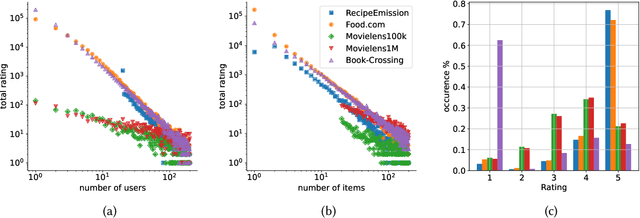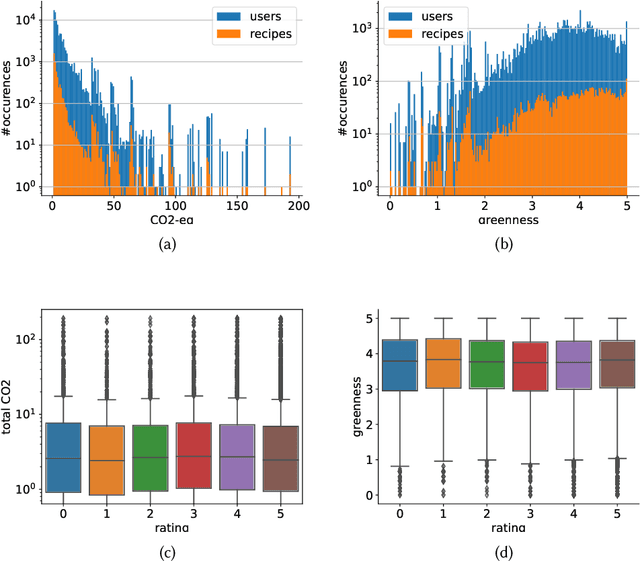Towards Carbon Footprint-Aware Recommender Systems for Greener Item Recommendation
Paper and Code
Mar 21, 2025



The commodity and widespread use of online shopping are having an unprecedented impact on climate, with emission figures from key actors that are easily comparable to those of a large-scale metropolis. Despite online shopping being fueled by recommender systems (RecSys) algorithms, the role and potential of the latter in promoting more sustainable choices is little studied. One of the main reasons for this could be attributed to the lack of a dataset containing carbon footprint emissions for the items. While building such a dataset is a rather challenging task, its presence is pivotal for opening the doors to novel perspectives, evaluations, and methods for RecSys research. In this paper, we target this bottleneck and study the environmental role of RecSys algorithms. First, we mine a dataset that includes carbon footprint emissions for its items. Then, we benchmark conventional RecSys algorithms in terms of accuracy and sustainability as two faces of the same coin. We find that RecSys algorithms optimized for accuracy overlook greenness and that longer recommendation lists are greener but less accurate. Then, we show that a simple reranking approach that accounts for the item's carbon footprint can establish a better trade-off between accuracy and greenness. This reranking approach is modular, ready to use, and can be applied to any RecSys algorithm without the need to alter the underlying mechanisms or retrain models. Our results show that a small sacrifice of accuracy can lead to significant improvements of recommendation greenness across all algorithms and list lengths. Arguably, this accuracy-greenness trade-off could even be seen as an enhancement of user satisfaction, particularly for purpose-driven users who prioritize the environmental impact of their choices. We anticipate this work will serve as the starting point for studying RecSys for more sustainable recommendations.
 Add to Chrome
Add to Chrome Add to Firefox
Add to Firefox Add to Edge
Add to Edge